After solid growth in recent years, sales of plug-in hybrids nosedived in 2022, falling well below expectations. Nevertheless, for drivers who want to go greener but are not ready to make the jump in to a fully electric car, the plug-in hybrid (usually abbreviated to PHEV) fills a valuable niche.
The number of plug-in hybrid cars on UK roads has increased rapidly in the last few years years, although that has partly because they help manufacturers to cut their average CO2 emissions (on paper, at least) to comply with EU legislation and avoid the threat of large fines.
However, the last year has seen momentum shifting firmly in favour of fully electric vehicles. For most households with the ability to charge at home, a full EV has more than enough battery range to cover the vast majority of their driving needs. The plug-in hybrid appeals to those who regularly need to drive long distances and can’t afford to spend time charging at motorway services.
As a result, there are now many more EVs being launched in the market than plug-in hybrids. Despite that, there is still a definite demand for the plug-in hybrid and there are more models set to grace UK roads over the next 12 months. Here’s our round-up of all the plug-in hybrid cars currently on sale in the UK, and what’s on the way.
You may also like:
Alfa Romeo
Alfa Romeo’s first plug-in model, the Tonale small SUV, is finally expected in showrooms in March, a year later than was predicted when it was first unveiled. It’s the first Alfa Romeo with any form of electricity and we don’t know yet what’s to follow it, though the brand insists it will offer a fully electric range by 2027.
Plug-in hybrids on sale now
Plug-in hybrids launching this year
Aston Martin

Aston Martin’s electrification plans remain shrouded in secrecy, chairman Lawrence Stroll only saying that the brand will launch its first EV in 2025, and by 2026, be “fully electrified” – to what extent this includes plug-in hybrid models is yet to be revealed.
Whatever form the electrification takes, its first mainstream application is likely to be to the DBX SUV. However, there will be a plug-in hybrid before that, with the Valhalla hypercar (above) finally expected to reach production in 2023 – with a £600K price tag… It’s changed quite a lot from the original concept developed with Aston Martin’s former partner, champion F1 team Red Bull Racing, and will now rely much more heavily on Mercedes-Benz componentry than was originally planned.
Audi
Audi has embraced plug-in hybrids with enthusiasm and plenty of models in its line-up include a PHEV option these days. From the A3 hatchback to the A8 lucury saloon, and the Q3 and Q5 SUV models, plug-ins are a core part of the line-up.
A big missing link in the range is the A4, once the car every middle manager desired if they weren’t into the BMW 3 Series. The next generation A4 is expected in 2023 in both saloon and Avant (estate) form, with a plug-in hybrid and possibly a full electric version in the mix.
Also set to launch this year is the latest generation of what is now Audi’s most popular model, the Q5 SUV, and again it will include a PHEV version.
Launching this year
- Audi A4
- Audi Q5 (new model)
Bentley
Bentley’s plug-in hybrid range doubled in 2022 when the hybrid Bentayga SUV was joined by a partly electrified version of the Flying Spur saloon. The two systems are bespoke to their models, the Bentayga’s electric motor joined to a 3.0-litre petrol engine, the Flying Spur’s to a 2.9-litre unit.
Bentley has stated that its entire range will offer plug-in models by 2024 ahead of the first full electric car in 2025. This basically means adding plug-in hybrid options to the Continental GT coupé and convertible, but there is no indication that we will see these this year.
BMW

BMW offers PHEVs right across its line-up alongside a growing range of all-electric models. Only the smallest 1 Series and 2 Series Coupé and Gran Coupé models currently come without any plug-in assistance, though a new 2 Series Active Tourer PHEV went on sale in 2022.
The most noteworthy upcoming BMW arrival is the new 7 Series saloon (above), which is now available to order – a line-up that includes plug-in hybrid models, as well as the headline all-electric i7 saloon.
2023 also marks 50 years of BMW’s M performance range, and as part of the celebrations the German brand has unveiled the XM plug-in ‘super SUV’ with a twin-turbo V8 and electric motor for a combined 650hp, which is soon available for with a £146,000 price tag.
Also expected is the next generation of BMW’s best-selling 5 Series executive saloon, with a wide range of powertrains including an expanded choice of PHEVS, extending for the first time to the performance M5 variant.
Launching this year
- BMW XM
- BMW 5 Series
- BMW M5
Citroën
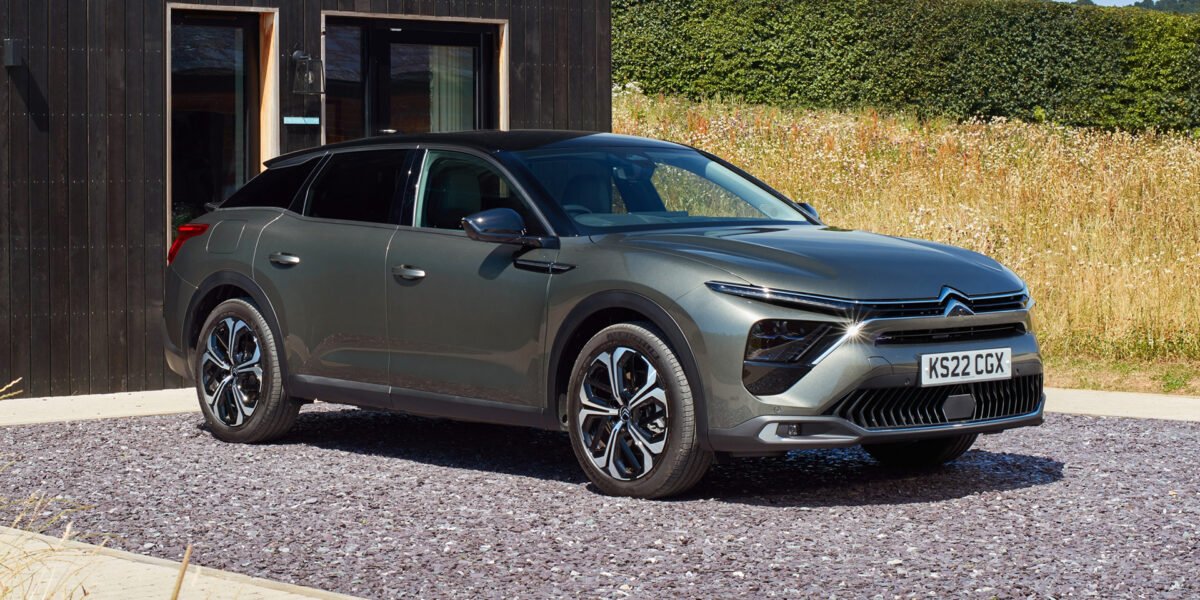
Citroën’s plug-in hybrid options became a family of two in 2022 when the C5 Aircross SUV was joined by the C5 X (above), a surprising move to offer a new flagship large saloon at a time when such models are rapidly declining in popularity.
Two new full-electric models are expected from Citroën in 2023, the ë-C3 and ë-C4 X crossover, but apparently no more plug-in hybrids.
Cupra
SEAT’s performance-pitched spin-off brand Cupra has been selling its Leon and Formentor in plug-in form for a couple of years now, and these were joined in 2022 by the all-electric Cupra Born.
The next PHEV model will be the brand’s first electrified SUV and could be called the Tarramar, but we don’t expect to see it on sale until at least 2024.
Dacia
Dacia has no apparent plans for any serious electrification of its UK line-up, with only a non-plug-in hybrid offering set to be made availabble for the seven-seat Jogger. It still remains unclear if or when the all-electric Spring will go on UK sale, and Dacia is apparently concerned that adding hybrid tech to the rest of its models could compromise the brand’s main selling pitch of affordability.
DS Automobiles

Nothing new to see here in terms of Citroen’s spin-off upmarket brand – the same three plug-in hybrid models that were on sale at the start of 2022 remain in the showroom today, although the DS 7 Crossback SUV has undergone a mild facelift, dropping the Crossback part of its name and its only pure petrol engine. The powertrain line-up for the revised DS 7 (above) now consists of 225hp, 300hp and 360hp plug-in hybrids options, as well as a diesel engine.
Ferrari

The world’s most iconic supercar manufacturer now has not one but two plug-in hybrid models in its range, the first being the mid-engined 296 (above), available as either the 296 GTB coupé or 296 GTS targa. This arrived in 2022 with a 2.9-litre petrol engine and electric motor combining for 830bhp and a sub three-second 0-62mph time.
The 296 is the little brother to the even-more-potent SF90 Stradale, which shares its name with Ferrari’s 2019 F1 car – the SF part of the name celebrates the 90th anniversary of the brand’s racing team, Scuderia Ferrari. Total output is 1,000hp through a twin-turbo V8 and no less than three electric motors. What it will be followed by is open to question – Ferrari’s big launch of 2023 is set to be the Purosangue SUV, which will launch with V12 petrol power and no hint of electrification.
Fiat
Fiat’s range still includes no plug-in hybrid models and only one fully electric car, the 500e supermini. The brand describes itself as ‘fully-electrified’ because its entire model range has some form of electrification, but other than the aforementioned 5003 EV, the rest are only mild hybrids with a bare minimum of electrical assistance.
Ford
Ford’s slow march to electrification of any kind has so far seen just a plug-in hybrid version of the Kuga SUV and Tourneo Custom van-based MPV alongside the full-electric Mustang Mach-e in the UK model range. And in 2023 we can expect little to change with Ford’s much-vaunted electric programme focused on 2024 and beyond.
The brand says it will be all-electric by 2030 and “zero-emissions capable” by 2026, which could mean new plug-in hybrid models, but no details are yet forthcoming with hints from Ford personnel suggesting that the blue oval will focus more on all-electric cars.
Genesis
Hyundai’s upstart and upmarket sister brand significantly added to its electric credentials in 2022 with three EVs launched including the all-new GV60 mid-sized crossover. But there were no plug-in hybrids announced and there currently seems little to suggest that the brand has any plans in this area.
Honda

Honda is a hybrid veteran, its experience in such drivetrains going back as far as that of prime rival Toyota. But a succession of Honda cars have been regular hybrids with minimal electric-only ability, with no plug-in versions. Finally in 2023, that is set to change.
The latest sixth generation of the CR-V SUV, already on sale in the USA, will arrive here during the year, initially with the basic hybrid setup of predecessors. But at some point Honda’s first plug-in hybrid will join the range, though no details of this powertrain have been released yet.
Hyundai
Hyundai’s current electric range includes a trio of plug-ins, among the model line-ups of the Tucson and Santa Fe SUVs and the original Ioniq family hatch. And there don’t currently appear to be any plans to add more, the Korean brand much more focused on further expanding its rapidly growing range of all-electric cars including an Ioniq 7 flagship large SUV.
Jaguar
Do not expect to see any exciting electric news of any kind from Jaguar in 2023, and particularly not any plug-in hybrids joining the current E-Pace and F-Pace SUVs in the line-up. Working with sister brand Land Rover, a new platform is under development to form the basis of all future electric models, but we are not likely to see any of these before 2025 and there’s no clue as to whether any will be hybrids.
Jeep

Jeep’s two plug-in hybrid options, in the Compass and Renegade small SUV model ranges, were joined by a plug-in hybrid version of the latest Grand Cherokee large SUV – offering 380hp – in late 2022. A new all-electric model, the Avenger, arrives in showrooms this Spring and more full-electric models will follow, but there are no indications of Jeep offering further hybrids.
Kia

Kia has embraced all aspects of electric power with enthusiasm, and alongside a clutch of full electric cars its model range boasts four plug-in hybrids – the XCeed, Sportage and Sorento SUVs and an all-new version of the Niro which launched last year.
Kia has committed to launching nine all-electric cars in the UK by 2027, starting with the large flagship SUV the EV9, but has not yet revealed any plans for further plug-in hybrids.
Land Rover

Land Rover considers itself an ‘electrified brand’ and puts sister Jaguar to shame – every single one of Land Rover’s six model lines now includes a plug-in hybrid variant, including the latest version of the flagship Range Rover which arrived in 2022.
Future plans for hybrid models are less certain. Land Rover is working towards fully electric models using a new platform being developed with Jaguar, but these are thought to be more than a year away yet.
Lexus

Lexus added its first plug-in model to the range in 2021 in the form of the new NX, the second generation of the brand’s best-selling SUV.
Due to arrive in 2023 is the all-new RX large SUV, which will also feature a plug-in version. After that, we’re more likely to see a raft of new electric models as Toyota and Lexus play catch-up to the rest of the car industry in rolling out a full line-up of EVs.
Maserati
A year ago the word was that Maserati’s forthcoming mid-sized SUV, the Grecale, could include the brand’s first plug-in hybrid drivetrain. But, like other Maseratis, only mild-hybrid assistance is an option on the newcomer at the moment, with a full-electric model to come in future.
In fact Maserati seems very turned off by the whole plug-in hybrid equation, indicating that the weight penalties outweigh the perceived benefits. Instead the Italian brand is pledging its future on fully electric ‘Folgore’ models.
Mazda
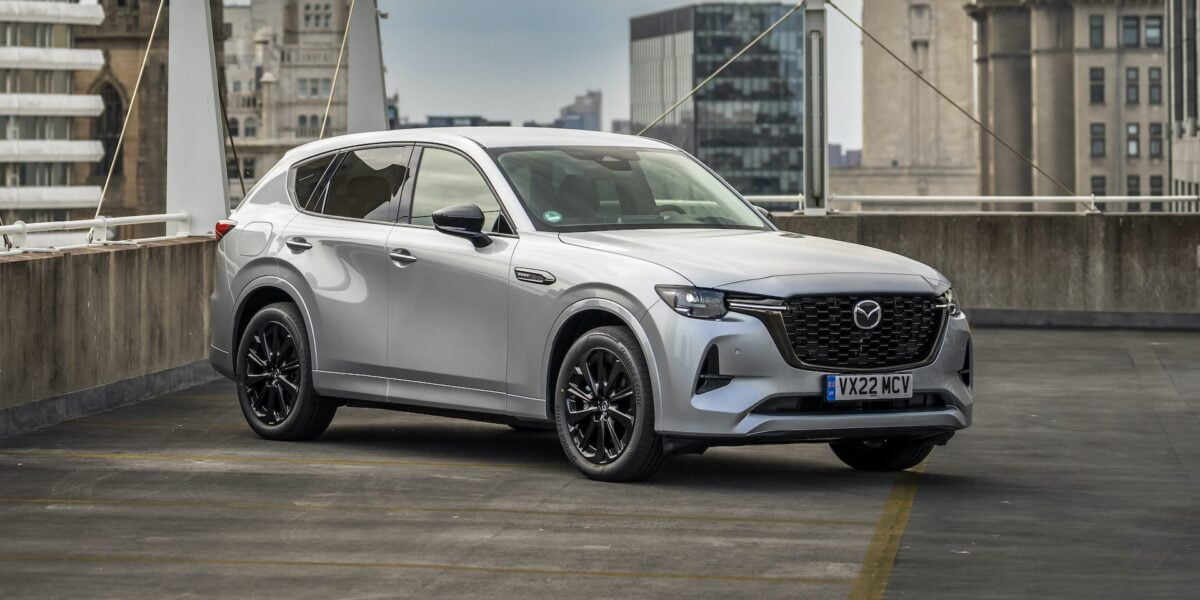
Mazda has become a loud advocate of squeezing more efficiency from conventional combustion engines rather than following the battery electric path of the rest of the car industry. The first EV, the MX-30, launched only a couple of years ago and the first PHEV, the CX-60, in 2022. Unfortunately, this has simply seen Mazda lose ground on its rivals, a direction that it is now belatedly trying to reverse.
In 2023 we expect to see a bigger seven-seat sister to the CX-60, dubbed the CX-80 and also offering a plug-in hybrid version. Mazda will also further demonstrate its desire to be different with a range-extender version of the electric MX-30. This adds a smaller, modern version of the classic rotary engine that once powered the RX-7 sports car. In the MX-30, however, it will merely generate electricity to replenish the car’s depleted battery. Whether it helps to resurrect MX-30 sales remains to be seen.
McLaren

You can now buy a plug-in McLaren. It’s called the Artura (above), a two-door coupe with a 3-litre V6 petrol engine joined to the electric motor for more than 670hp and a three-second 0-62mph time. It also has a £185,000 price tag.
The Artura is said by many to set the future of McLaren. There are expected to be more versions of it, and its petrol/electric powertrain could also extend to other models, some say eventually including a crossover model. For now, McLaren is not saying, and any major changes are unlikely to happen in 2023.
Mercedes-Benz

With Mercedes-Benz, it’s quicker to list the model ranges that don’t have plug-in hybrid options. The German executive brand has embraced the technology with enthusiasm, with the large majority of its model lines including PHEV versions.
Last year saw the arrival of the second-generation GLC mid-sized SUV (above), while this year should see the launch of an all-new E-Class family. Its plug-in versions getting a new battery with a battery range of more than 60 miles, but we are only expecting saloon and estate versions this time around, with the coupé and cabriolet versions being dropped.
MG
MG’s range still includes only one plug-in hybrid model, the highly affordable if slightly downmarket HS. This is not likely to change any time soon, with the brand focusing more on fully electric models – led by the minicab-friendly MG 5 and highly praised MG 4 family hatchback models.
Mini
The ageing Mini family soldiers on with only one plug-in hybrid model, the Countryman crossover Apparently, its days are numbered as Mini begins a range renewal in 2023.
The Mini hatch will kick off this rebirth with a new and much more effective electric model, which – controversially – will be built in Austria rather than Mini’s traditional home of Oxfordshire. An all-new third-generation Countryman will follow either this year or (probably) next, and industry sources say it will offer electric and mild hybrid variants but not a plug-in hybrid. In 2021 Mini’s then-boss suggested that the brand does not see much of a market for plug-in drivetrains for its models.
Nissan
Nissan is a rare brand not to have taken the plug-in hybrid route. Even the mass-selling Qashqai SUV has never been offered as a plug-in hybrid, instead going with the brand’s bespoke ‘e-Power’ hybrid drivetrain, which is effectively a petrol-powered electric car that uses a petrol engine to generate electricity for the electric motor.
The company has publicly delcared that it views e-Power as a better stepping stone to full EVs than conventional hybrids, with or without plugs. The e-Power drivetrains are currently available in both the Qashqai and X-Trail SUV models, in either front-wheel drive or (the awfully named) ‘e-4orce’ all-wheel drive.
Peugeot
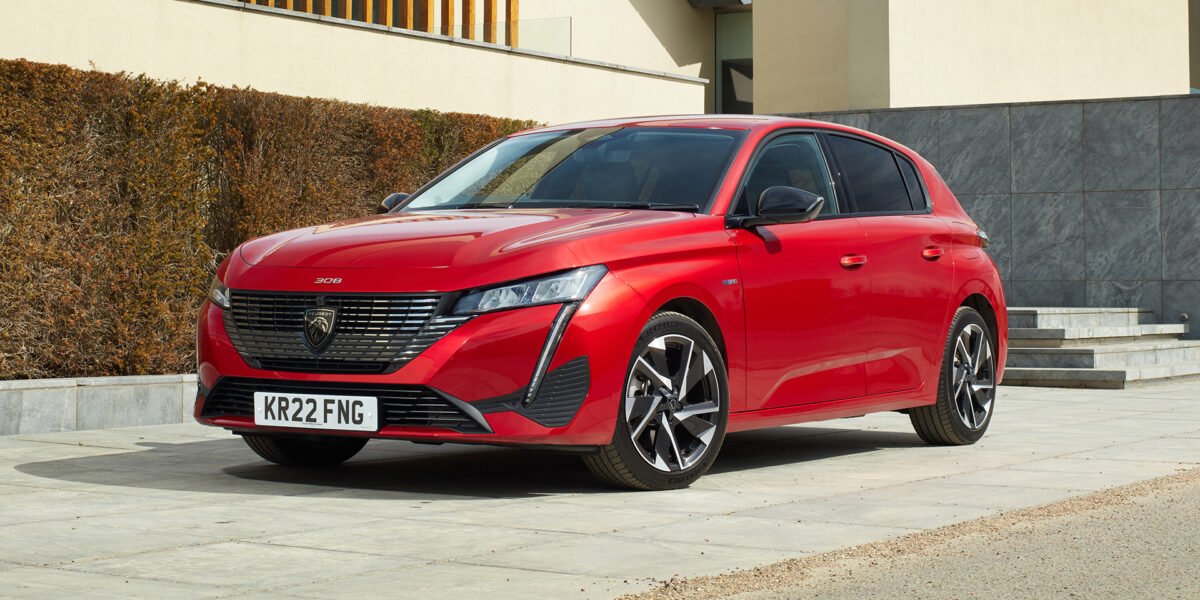
Peugeot’s 508 family car and the 3008 SUV both include plug-in hybrid options, and the somewhat delayed new generation of the 308 launching this year is also being offered as a plug-in hybrid in both hatch and estate versions.
We will see another new Peugeot in showrooms, the 408 fastback. This will include two plug-in hybrids in its powertrain choices, combining the electric motors with 1.6-litre petrol engines and offering either 180 or 225hp. Now available to order, the 408 is later expected to eventually gain an all-electric model too.
Polestar
The plug-in hybrid era of new Volvo spin-off brand Polestar has been a short one, as only the limited-edition Polestar 1 was offered with a combination of petrol and electricity and all have now been sold. The Polestar 2 hatch and the Polestar 3 SUV which launches at the end of 2023 are both fully electric vehicles, as will be all future Polestars.
Porsche
Porsche fans who want plug-in hybrid propulsion have the same choice they did a year ago – the Panamera saloon, also available as an estate, and the brand’s biggest success story of recent years, the Cayenne SUV.
This is not likely to change any time soon, though both models are expected to undergo facelifts in 2023. That to the Cayenne will be significant, with changes to the drivetrain boosting power by 40hp and also offering more energy storage in the battery.
There are suggestions an all-new Panamera could launch by 2025, though its powertrains are yet to be revealed. Given the spectacular success of the similarly sized all-electric Taycan, Porsche will presumably want to take the Panamera in a different direction to separate it from the EV model.
Renault
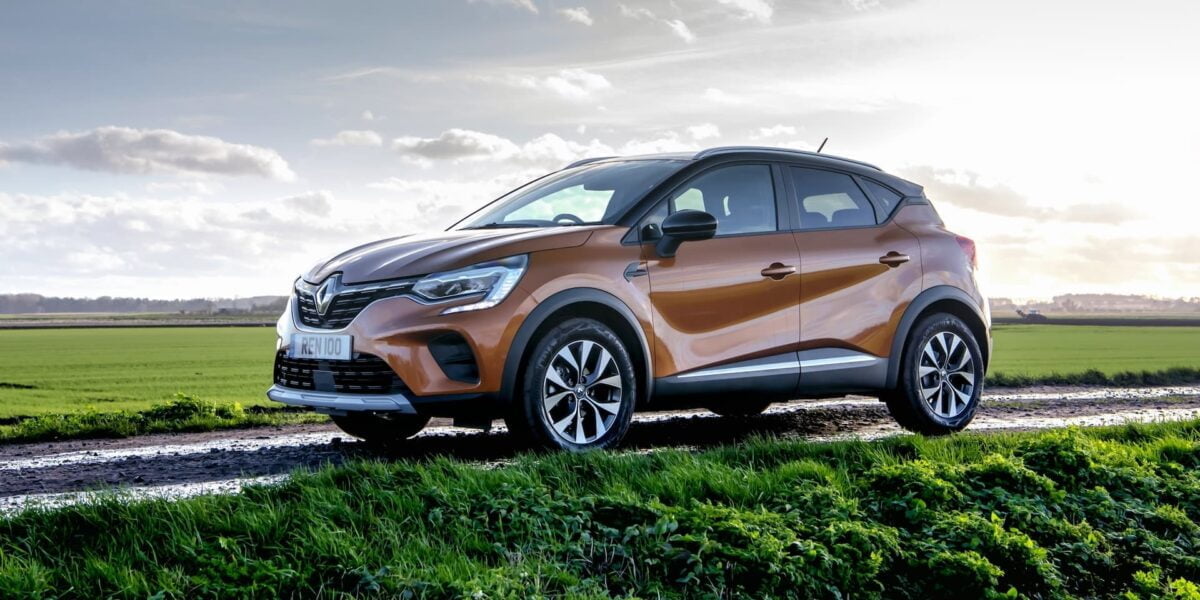
Renault’s choice of two plug-in hybrids dropped to one in 2022. The replacement of the Megane family hatch by the all-electric Megane E-Tech Electric left only the Captur small SUV available to plug-in hybrid fans, the model remaining popular as rival makers don’t appear to like offering their small SUVs as plug-ins.
The second-generation Captur arrived back in 2019, with the 160hp plug-in hybrid version arriving about a year later and offering close to 30 miles on electric-only power. But there is no sign of Renault extending the plug-in hybrid tech to other models in 2023. The all-new Austral is a replacement for the departed Kadjar SUV, but that will only be offered in basic hybrid form with no plug when it arrives at some point later this year.
Rolls-Royce
The Sussex-based maker of the most luxurious cars intends to transform into a fully electric brand by 2030, and the first model will be the Spectre, a coupe replacing the Wraith. But plug-in hybrids will not form part of that journey, Rolls-Royce preferring to go straight to all-electric powertrains.
SEAT
SEAT’s plug-in hybrid option remains just the VW Golf-based Leon family hatch – industry suggestions that updates to the seven-seat Tarraco SUV would include a hybrid model have not come to pass. And there appears to be no electric news of any kind on the horizon for SEAT, sources suggesting that the brand has once again become a ‘problem child’ of parent the Volkswagen Group, which prefers to focus on the sporty spin-off Cupra brand.
Skoda
Another brand in which the plug-in hybrid picture at the start of 2023 looks exactly the same as a year earlier – the Octavia large family car and Superb executive saloon can both be had as plug-in hybrids.
The ageing Superb is set to be replaced with an all-new model in 2023 – powertrains are not confirmed but industry sources expect the plug-in hybrid option to remain as the model is not expected to go all-electric yet. But there are no new models on the horizon as Skoda goes down the route of full electrification. An all-new version of the Kodiaq seven-seat SUV is also expected towards the end of the year with both mild and plug-in hybrid options.
Launching this year
- Skoda Superb
- Skoda Kodiaq
SsangYong
Nothing to see here for SsangYong, which dipped its toe into the electric pool in 2022 with the Korando e-Motion, an electric version of the Korean brand’s SUV.
There also appears to be nothing on the way in terms of a plug-in hybrid model, as SsangYong looks like another brand set to bypass hybrids in favour of going straight to 100% electric models.
Subaru
Subaru seems to sell so few cars in the UK these days that you’d be forgiven for thinking it had disappeared altogether. There are no plug-in hybrid models on the books and apparently none on the way.
The only EV model available is the Solterra SUV, which is basically a reskinned Toyota bZ4X, although the launch of these EV twins was badly affected by a worldwide recall before the cars had even gone on sale in the UK.
Suzuki

Suzuki’s very slow march towards electrification has so far produced just one plug-in hybrid offering, and the Across SUV is actually a rebadged Toyota RAV4. There’s no suggestion that any further petrol/electric models are on the way any time soon – in fact only in January this year did Suzuki show its first electric concept car, not expected to reach production before 2025.
Tesla
Not surprisingly as the perceived standard-bearer for all-electric motoring, Tesla has never flirted with plug-in hybrid drivetrains and apparently has no plans to.
Toyota

Given the long success that Toyota has had with basic hybrid models (marketed as ‘self-charging’ but that’s a load of nonsense), it’s a surprise that the company has never gone large on plug-in hybrids.
The last Prius hybrid was available with or without a plug, but that was discontinued last year and the all-new one won’t be coming to the UK. That leaves the RAV4 SUV as the only plug-in hybrid that Toyota currently offers.
Not much is expected to change this picture in 2023 as the world’s largest car brand tries to make up lost ground on fully electric models, having previously snubbed battery cars in favour of hydrogen fuel cells. With that looking very much like a dead-end road for the current time, Toyota has belatedly announced billions of pounds to develop an entire family of battery electric cars ahead of various global deadlines to phase out petrol and diesel vehicles.
The next generation of the C-HR small SUV is due at the end of the year and may be offered with a plug-in hybrid option, but Toyota’s focus is now very much on EVs.
Vauxhall
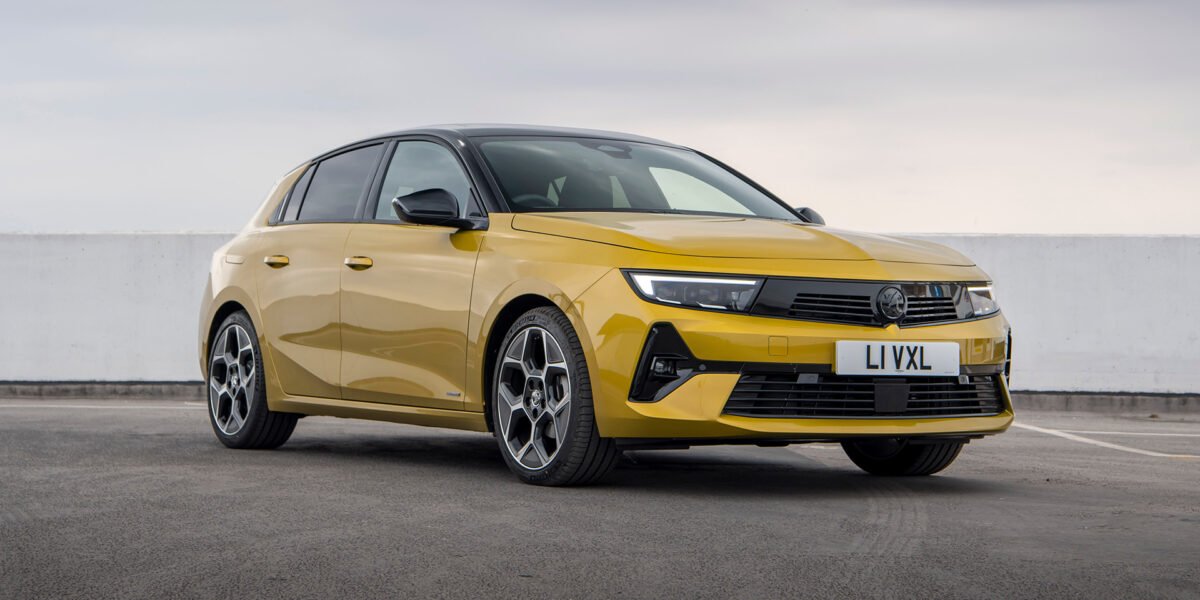
Vauxhall has offered its Grandland SUV as a plug-in hybrid for some time, and a significantly facelifted version arrived in 2022 with the plug-in model slashed in price.
The hybrid options stepped up a gear in 2022 with the launch of the latest Astra family hatch range, the new line-up including a plug-in hybrid ahead of the launch of a fully electric version in 2023.
Volkswagen
Volkswagen some time ago adopted plug-in hybrid powertrains with enthusiasm and currently you can get them in the Golf, Passat, Arteon, Tiguan and Touareg ranges. But this choice is set to decline soon as VW shifts its attention to EVs instead.
The company’s line-up of EVs is even more impressive than its plug-in hybrids and the next of these will be the ID.7, a four-door saloon that will replace the Passat. The demise of the Passat is likely to be followed shortly after by the closely related Arteon (basically a sleeker Passat), while the current Golf range will be updated for as long as it remains viable to keep selling its famous family hatch in fossil-fuel and hybrid formats.
Volvo
Volvo is another brand progressing in similar fashion to Volkswagen – plug-in hybrid options currently extend right through the Swedish brand’s seven-strong model range but their days are numbered as the next generation of all these models are likely to be fully electric.
The brand’s largest SUV, the seven-seat XC90, was recently given its final facelift to see it out. It will be replaced by the all-new, all-electric EX90 next year, although the XC90 may soldier on alongside the new EV for a while before finally bowing out.
The mid-sized S60 saloon was discontinued in the UK “temporarily” in 2022, although no-one in the automotive media really expects to see it return. The larger S90 saloon is only available as a plug-in hybrid, with petrol and diesel models dropped a while ago, while the V60 and V90 estate models still sell in better numbers so are available in a wider range of trims and engines.
Additional reporting by Sean Rees and Stuart Masson.
